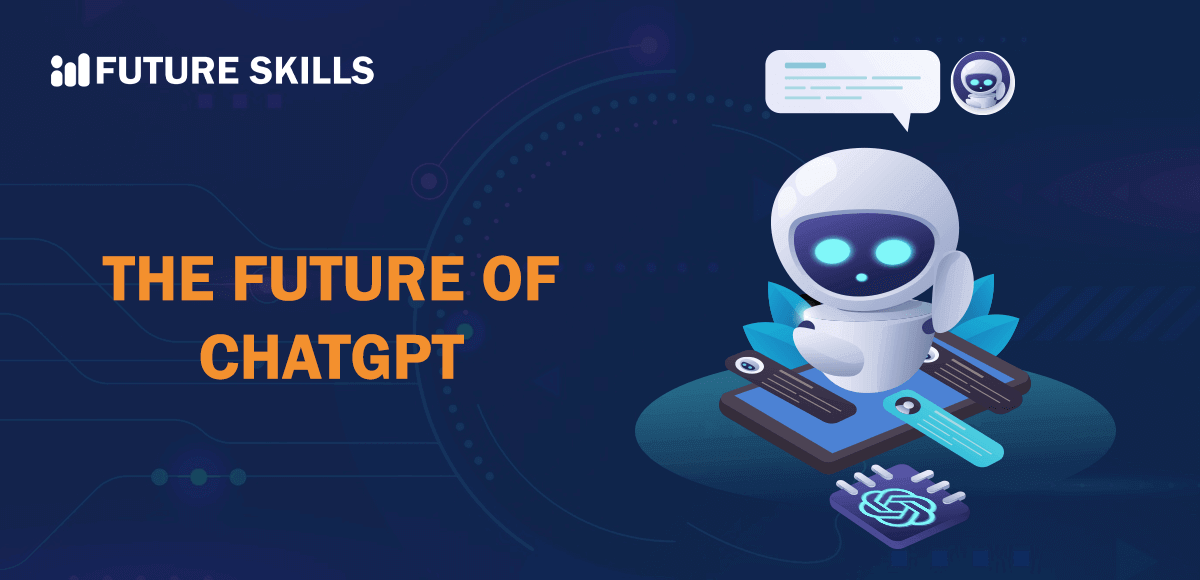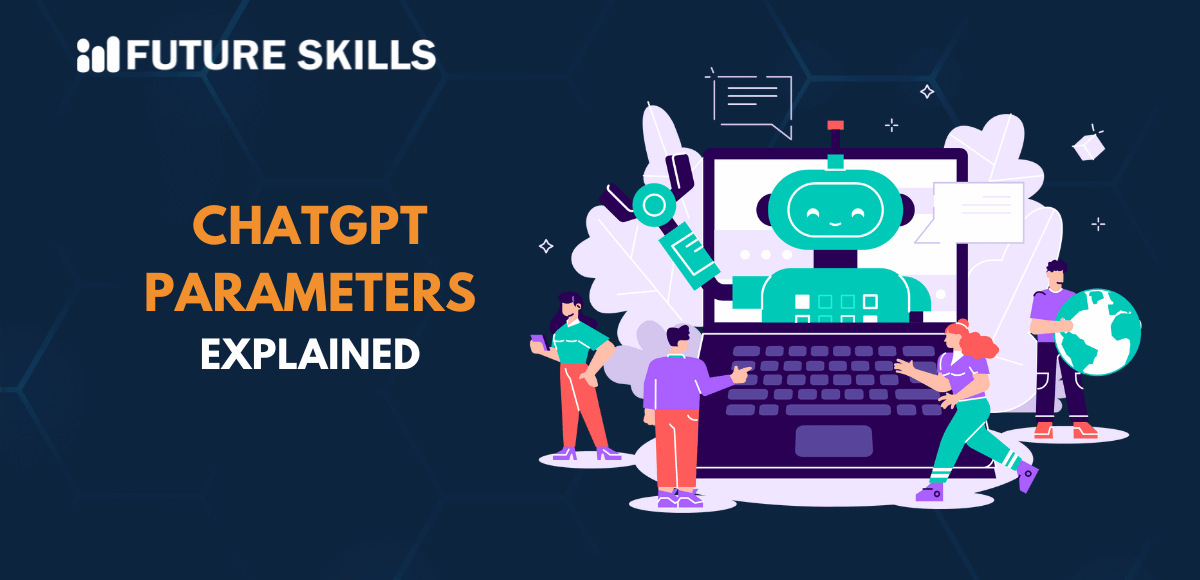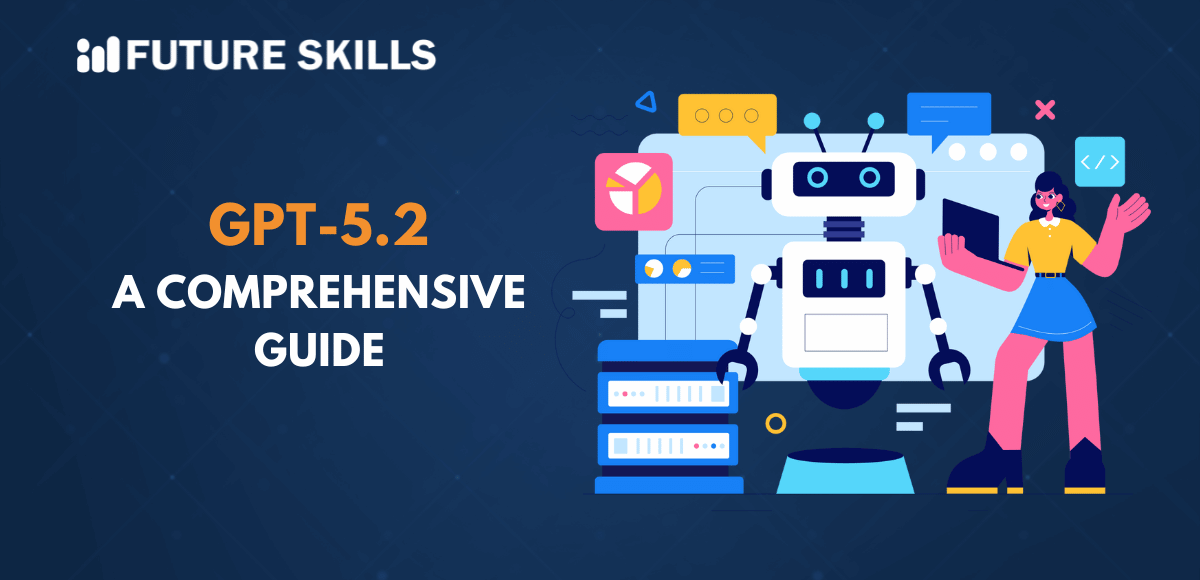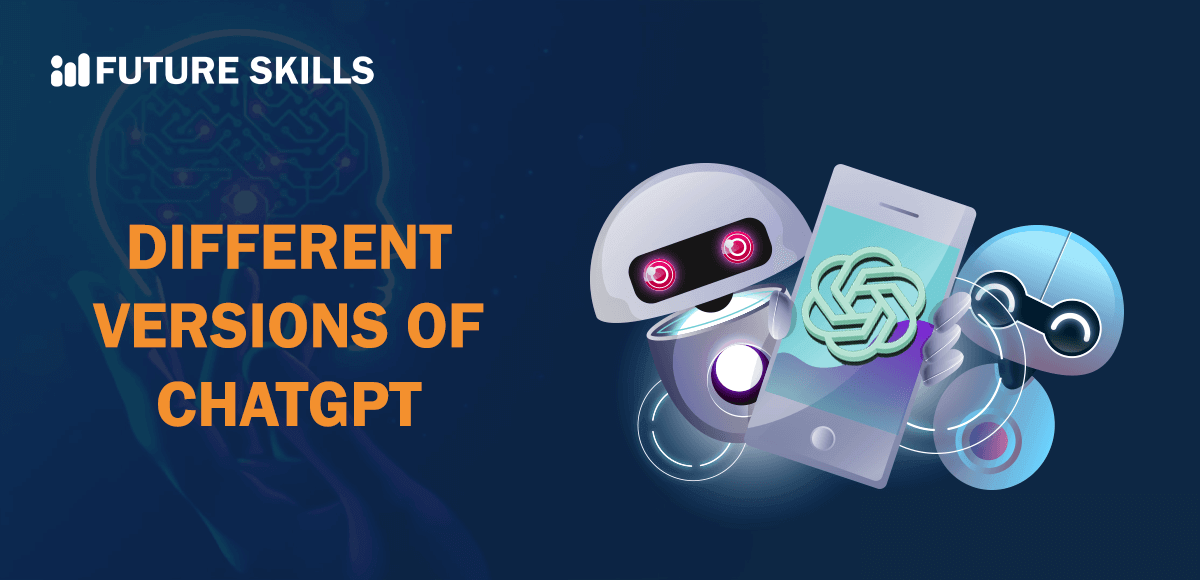The continuously expanding scope for innovation in the domain of technology has manifested in the form of artificial intelligence. As artificial intelligence continues evolving, it has led to new possibilities in the approaches to interaction with machines. One of the most noticeable examples of AI use cases in real life draws attention towards ChatGPT. It has become more than just an AI-based chatbot by leveraging the power of large language models. Most of the discussions about the future of ChatGPT paint a positive picture of the future of generative AI. At the same time, ChatGPT also presents concerns regarding the legal and ethical implications associated with generative AI tools.
ChatGPT is a popular large language model created by OpenAI and has set the ideal example for the potential of AI. The predictions about ChatGPT’s future have been based on the vision of ChatGPT developers. The team at OpenAI did not want to create another AI tool. On the contrary, they looked for a system that can understand human queries and interact with them based on the context. In this post, we will find some valuable insights about ChatGPT’s future prospects.
Become a certified ChatGPT expert and learn how to utilize the potential of ChatGPT that will open new career paths for you. Enroll in Certified ChatGPT Professional (CCGP)™ Certification.
What are ChatGPT’s existing capabilities and limitations?
As of January 2023, ChatGPT had garnered 100 million users. By April 2023, the number of ChatGPT users had reached 173 million. The number continued to grow till August 2023 and then turned into a plateau. However, news highlights such as “ChatGPT Future of AI” started making the rounds and encouraged broader adoption of ChatGPT. The capabilities of ChatGPT make it one of the most embraced AI tools.
With a simple interface, it can understand human queries and respond in natural language to different types of questions. Some of the notable capabilities of ChatGPT include the ability to initiate conversations on different types of topics, answer questions based on facts, and even make jokes. Most importantly, it can learn and improve its knowledge base by processing more data.
The responses to questions like “What will the future of ChatGPT be?” also invite attention to the limitations of ChatGPT. For example, ChatGPT can generate inappropriate and completely irrelevant responses to certain queries. It happens mostly when ambiguous or incomplete information is obtained.
ChatGPT also struggles with understanding sarcasm, non-literal expressions used in everyday conversations, and colloquial language. Furthermore, ChatGPT can generate repetitive responses when it comes across topics that were not a part of its training data. The limitations of ChatGPT also include the possibility of biases, degree of accuracy, and contextual understanding of complex questions or prompts.
Will Natural Language Processing Boost the Growth of ChatGPT?
Natural Language Processing, or NLP, is one of the most crucial domains of artificial intelligence. It focuses on helping machines understand, interpret, and generate natural human language. With the continuously increasing scale of developments in NLP, it is reasonable to consider their impact on ChatGPT. NLP can not only influence the future of chatbots but also help in addressing some of the limitations of ChatGPT. Here are some of the prominent ways in which innovative advancements in natural language processing can help ChatGPT.
-
Enhanced Dialogue Systems
Chatbots are one of the most notable examples of NLP use cases. ChatGPT can leverage the advancements in NLP to create advanced dialogue systems. ChatGPT can use such systems to generate relevant and coherent responses. It can develop a better understanding of the context of a conversation and identify the user’s needs more effectively. As a result, ChatGPT can serve more personalized interactions, thereby making it an invaluable tool in different settings.
-
Better Language Models
The innovative developments in NLP also point to the prospects for development of more complex language models. Any discussion about ChatGPT’s future scope would emphasize the fact that it is an impressive example of large language models. However, the popularity of ChatGPT has encouraged the arrival of many other alternatives with advanced capabilities and better accuracy. Therefore, ChatGPT should leverage the capabilities of new models to keep pace with the fast changes in language patterns in human conversations.
-
Resolving ChatGPT Limitations
The emerging advancements in the domain of natural language processing can help in addressing certain limitations of ChatGPT. For example, NLP enhancements can help in understanding non-literal expressions and colloquial language. The continuous improvement in NLP technology would ensure that ChatGPT wouldn’t have to face issues in generating contextually relevant and accurate responses.
Level up your ChatGPT skills and kickstart your journey towards superhuman capabilities with Free ChatGPT and AI Fundamental Course.
What will the Future of ChatGPT Look Like?
The common themes in discussions around terms such as ‘ChatGPT future of AI’ draw references to the positive use cases. How will ChatGPT help in changing the world? The answer to such questions can provide a clear impression of the future opportunities for ChatGPT. Let us go through a list of some of the notable highlights that would define the future of generative AI.
-
ChatGPT and the Future of Customer Service
The most popular use case of ChatGPT is in the domain of customer service. ChatGPT has gained popularity for offering significant improvements in conversational efficiency. As the volume of customer inquiries continues growing, the process can be significantly resource-intensive and time-consuming. Most of the answers to “What will be the future of ChatGPT?” revolve around ChatGPT’s capability to enable human-like dialogue. ChatGPT can reduce the challenges of customer service by delivering round-the-clock automated customer service.
ChatGPT can use natural language processing to understand and respond to customer inquiries in a way that feels like talking to human representatives. Businesses can use ChatGPT to improve customer experiences through personalized responses and lower waiting times. Furthermore, ChatGPT also has the capability to answer a broad range of questions and offer information about products.
Another notable benefit of ChatGPT in customer service is the ease of integration with customer service tools. ChatGPT has a major role in shaping the future of chatbots by offering seamless experiences to customers and helping them interact with the company through preferred channels. Advancements in NLP can draw out new and innovative use cases of ChatGPT in the field of customer service.
-
Role of ChatGPT in Streamlining Business
The business landscape is gradually becoming more competitive, and every business needs a competitive advantage. ChatGPT can help businesses by being a crucial tool for improving their productivity and efficiency. The most valuable ChatGPT future prospects for business operations point to the areas of data analysis, understanding customer behavior, and prediction of market trends. ChatGPT can also help businesses through automation of repetitive tasks such as minute-keeping, scheduling, and data entry. As a result, it can free up some of the workforce to emphasize critical activities.
The use of ChatGPT in business operations ensures more than the advantages of cost reduction. ChatGPT can play a vital role in improving overall business processes while making them more agile and responsive to changes in the market. The future of ChatGPT in business applications would depend on the strength of machine learning.
Machine learning algorithms help systems refine their functionalities by using collected data, thereby improving efficiency and accuracy as it processes more data. Most of the AI systems feature such learning approaches to offer accurate data interpretation and predictive analytics.
-
Will ChatGPT Help with Mental Health?
Most of the science fiction movies have painted AI as a negative entity waiting to take over the world. However, ChatGPT works with a completely different narrative by working in collaboration with the user. The predictions about ChatGPT’s future scope are not limited to the technical capabilities of the generative AI tool.
The developers of ChatGPT had created it to offer a more personalized and ‘human’ connection. As ChatGPT evolves and becomes more emotionally attuned and intuitive, it can become more than a personal assistant. In a way, you can think of the impact of ChatGPT on the future of relationships between humans and AI.
Considering the potential improvements in ChatGPT, it is reasonable to believe that it can support mental health treatments. For example, ChatGPT would define the future of chatbots and enable them to serve as channels where people can seek support and help. ChatGPT can use NLP and machine learning capabilities to understand and respond to users in a non-discriminatory and compassionate manner. ChatGPT can serve as a virtual counselor or therapist and provide insights on mental health issues. It can provide information on evidence-based therapies in a conversational manner.
ChatGPT can also help people suffering from Alzheimer’s by serving as their companion. The generative AI tool can be useful for navigating daily routines, providing reminders for medications, and having someone to talk to. With the power of AI to understand, empathize, and respond to human emotions, ChatGPT can play a vital role in improving the emotional health of individuals.
Level up your AI skills and embark on a journey to build a successful career in AI with our Certified AI Professional (CAIP)™ program.
-
Impact of ChatGPT on Personal Productivity
One of the critical aspects in responses to “What will be the future of ChatGPT?” is the effect of ChatGPT on the job market. Many critics of ChatGPT have pointed out that ChatGPT might cause massive changes in job markets worldwide by replacing some roles. However, it is important to look at ChatGPT as a tool that can improve productivity in specific roles. Rather than looking for the negative aspects, the future of ChatGPT would be about utilizing it to its maximum potential. Most importantly, ChatGPT would have a massive influence on personal productivity.
ChatGPT can become a virtual assistant that manages all your tasks and important priorities. The natural language processing capabilities of ChatGPT can offer seamless conversational experiences that ensure easier scheduling of appointments and management of to-do lists. On top of that, ChatGPT can also offer valuable recommendations for prioritizing tasks and managing time effectively.
The review of queries for terms like ‘ChatGPT future of AI’ also involves references to possibilities for using ChatGPT in project management. It can enable real-time discussions with team members and task coordination alongside other activities, such as tracking progress. Therefore, the generative AI tool can serve as a valuable tool for boosting collaboration and reducing miscommunication.
-
The Relationship between ChatGPT and Creative Content
Another prominent theme in the future of ChatGPT revolves around the ways in which it can change the use of creative content. ChatGPT can come up with creative content through simple prompts to generate new ideas, sentences, or phrases. It can also come up with completely new stories by analyzing massive volumes of data and drawing inspiration from different sources. ChatGPT would serve as a revolutionary tool in the field of writing by offering new perspectives for articles, creating writing exercises, and assisting with writing new content.
The most noticeable use of the interplay between ChatGPT and creative content would be evident in the field of marketing. ChatGPT can serve as an invaluable tool for analyzing data on customer behaviors and their preferences. As a result, it can develop targeted marketing messages and ad copies that attract the target audience. Therefore, ChatGPT would play a crucial role in improving conversion rates and user engagement.
Excited to understand the crucial requirements for developing responsible AI and the implications of privacy and security in AI, Enroll now in the Ethics of Artificial Intelligence (AI) Course
Is Ethics an Issue for the Future of ChatGPT?
Yes, ethics is a prominent theme in almost every discussion about implementing AI in the real world. The ethical considerations that would play a vital role in influencing ChatGPT’s future scope include privacy, potential misuse, and biases. For example, ChatGPT utilizes large amounts of data to provide efficient, relevant, and accurate responses to human queries. How would it utilize the personal data collected to offer customized user experiences? What if the data used for training ChatGPT features biases that lead to biased outputs? It is important to resolve these questions about the ethics of ChatGPT to ensure a favorable future for the tool.
Final Words
The discussion about ChatGPT future trends emphasizes the different use cases of ChatGPT with crucial advantages. You can notice favorable opportunities for ChatGPT in the future as it can serve a wide range of industries and business use cases. On the other hand, the ethical considerations in the use of ChatGPT might present obstacles to its adoption in the future. Learn more about ChatGPT fundamentals and find the best ways to utilize it to your advantage right away.





